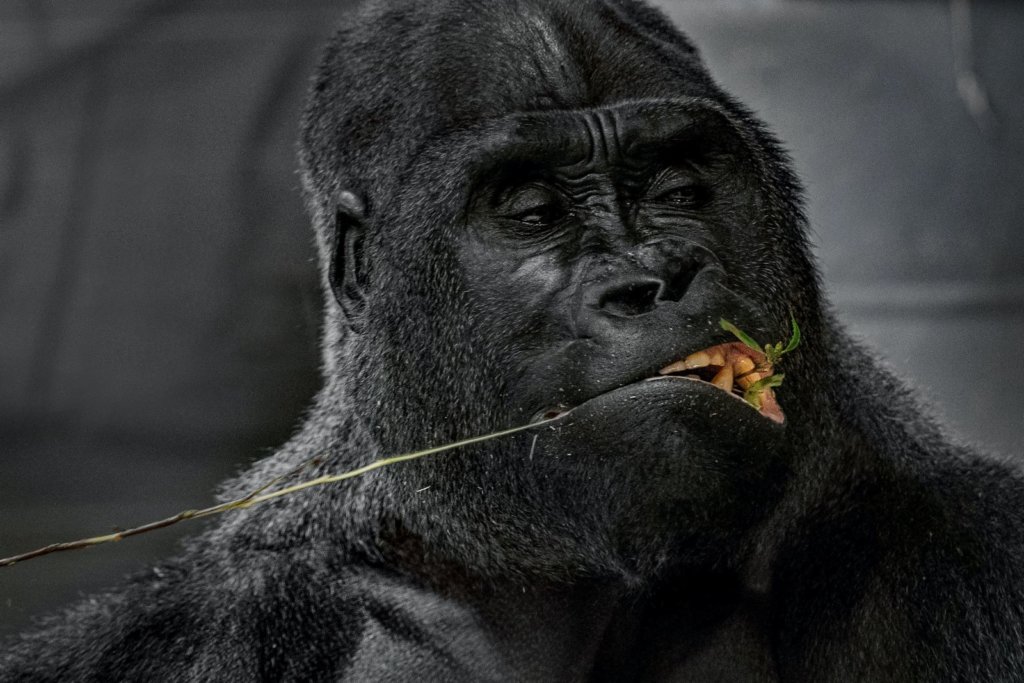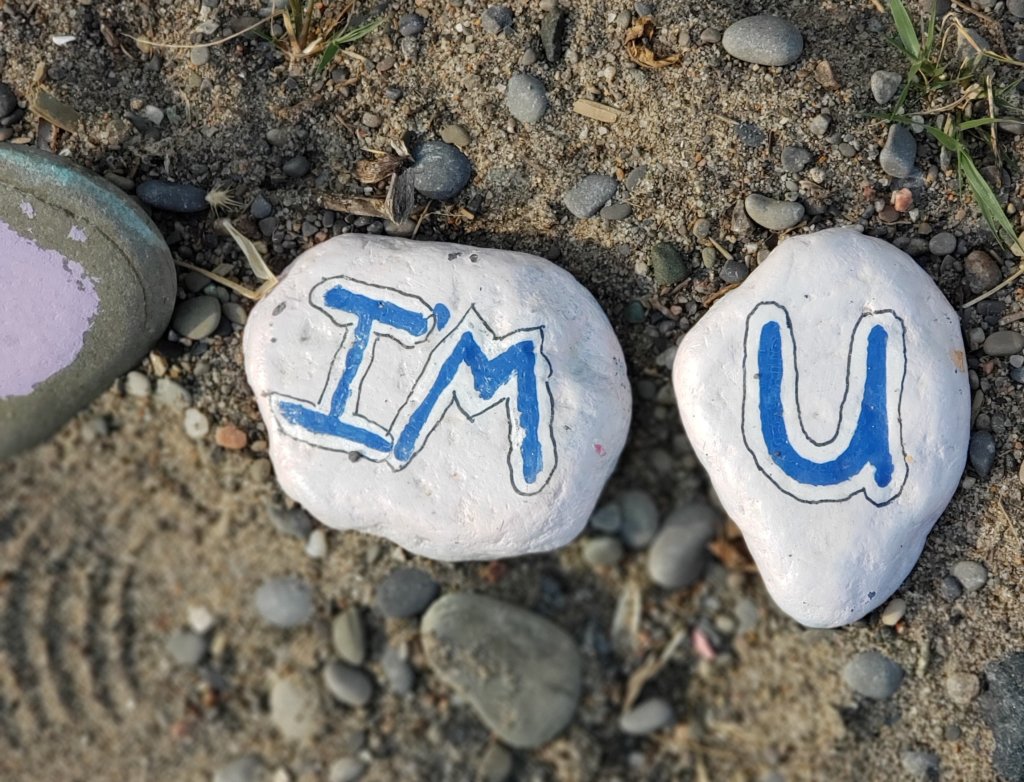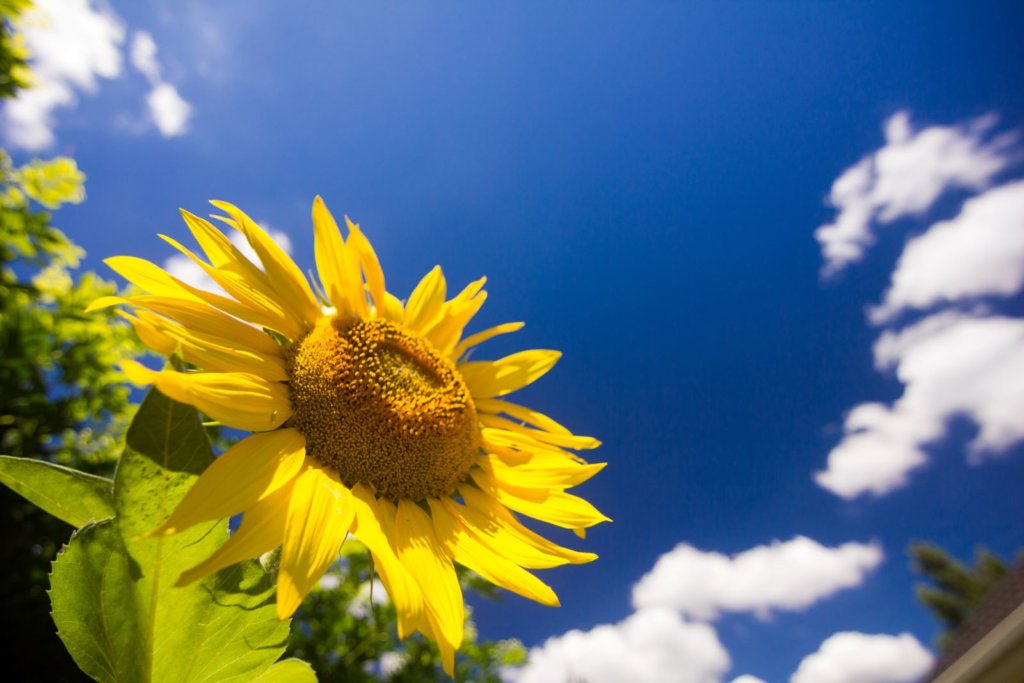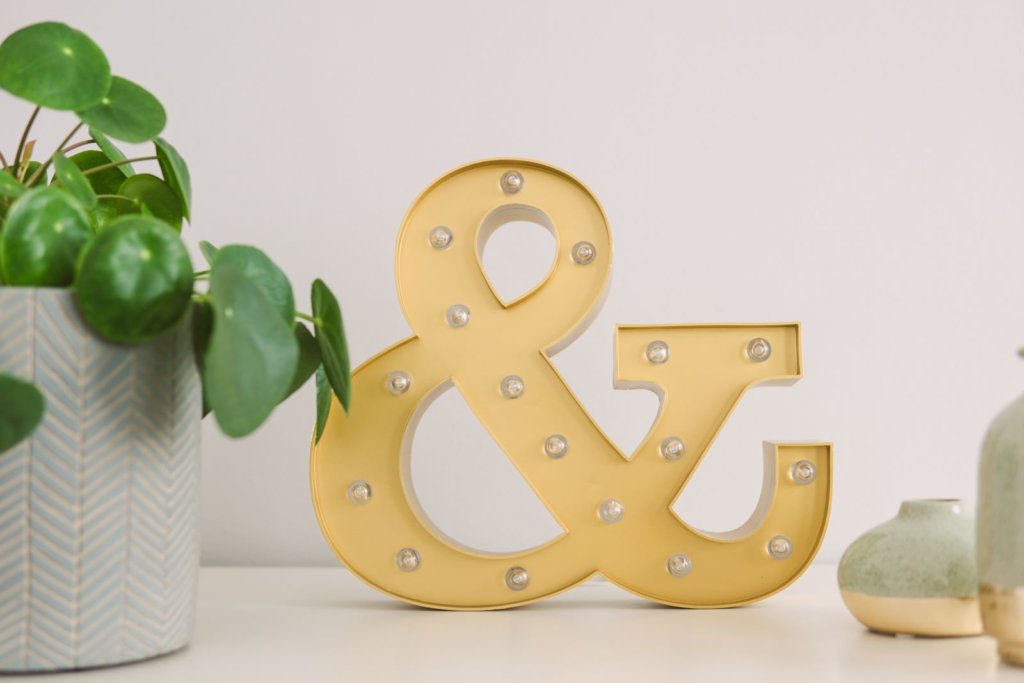I had a humbling experience on Friday. While listening to my new favorite podcast, “The Happiness Lab,” the host Dr. Laurie Santos discussed inattentional blindness, or the inability to perceive objects if we’re not paying attention to them. She ran an experiment with her Yale students where she showed them a video of people passing a basketball. She asked her students to count the number of passes among people wearing white shirts.
When they revealed the answer – 15 passes – she said, “Great! But did you notice the person wearing a gorilla suit walk through the circle of players?” Invariably, the students said, “No. What? A person was wearing a gorilla suit?” When I heard this, I thought to myself, “Wow! Really? They didn’t notice? I bet I would pick up on the person in the gorilla suit. After all, I’m a highly sensitive person and notice things people miss.”

You would think a gorilla is easy to spot! Photo by Patrice Audet on Unsplash
Dr. Santos also mentioned when people are pressed for time, they are more likely to have inattentional blindness. In other words, rushing causes us to stop noticing small details. Well, on Friday night, I was rushing and received a telephone call from a friend named Michael. I have six Michaels in my contact list and texted the most recent Michael that showed up in my text conversations and said, “I got your message, I’ll call you in an hour.” I called him in an hour, he didn’t answer, and I noticed his outgoing voicemail recording had changed.
It was only after my friend said, “Hey, did you mean to call a different Michael?” that I put it together. D’oh! Called the wrong one! Here I was thinking I’m immune to inattentional blindness and it turns out, no, I am not. I zeroed in on the name “Michael” and blocked out the last name. The experience reminded me that I am one among many. Yes, I often fall into the outlier category, but that doesn’t mean I’m better than anyone else and, yet, that’s exactly what I started thinking on Friday before calling the wrong “Michael.”
My spiritual teacher says most people suffer from some sort of complex: an inferiority complex, superiority complex, fear complex, etc. He adds that “a complex of any sort is a psychic malady, a psychic disease. To consider oneself superior to others is a serious human mistake. Similarly, thinking oneself inferior to others is also a mistake. To suffer from an inferiority complex is also a psychic ailment. You must not encourage either a superiority complex or an inferiority complex. You must maintain a psychic balance; you must maintain a mental balance.”
Maintaining a mental balance for me means recognizing I’m human, I make mistakes. It means adopting an attitude of humility, or freedom from pride and arrogance. When I looked up the origin of the word “humility,” I found it stems from the Church Latin word humilis, which literally translates as “on the ground.” Also, part of the word humility’s etymology is other words that mean “Earth.” I like that. Being humble means keeping my feet on the ground, staying present here on Earth, and recognizing I’m no better and no worse than anyone else. In other words, I am also likely to miss a person wearing a gorilla suit.
I dream of a world where we recognize we are no better and no worse than anyone else. A world where we understand we all have strengths and weaknesses but that doesn’t mean we’re superior or inferior to others. A world where we place ourselves on equal footing with our fellow human beings. A world where we adopt an attitude of humility and realize we are likely to miss a person wearing a gorilla suit.
Another world is not only possible, it’s probable.
My friend Kat Nadel, a Nonviolent Communication (NVC) facilitator, mentioned she’s writing a blog about eight things NOT to say to Ukrainians right now. One of those things is including the words “at least” anywhere in your response. For instance, if a Ukrainian says, “My 12-year-old niece had to travel by herself to Romania and now she’s sheltering at a refugee camp all alone,” and you say, “That’s terrible! At least she’s safe.”
Saying “at least” is discounting the experience, feelings, and perspective of the person sharing. “At least” never makes anyone feel better. It’s not connective, it’s not empathic. I know we’re encouraged to look on the bright side of things, to be grateful, and I agree with those practices, BUT not at the expense of emotional connection. And that’s what saying “at least” does. It puts distance between you and whoever is sharing.
We have a name for this practice: toxic positivity. It’s “dismissing negative emotions and responding to distress with false reassurances rather than empathy,” according to UW Medicine. “It comes from feeling uncomfortable with negative emotions. It is often well-intentioned but can cause alienation and a feeling of disconnection.”
Yep. Sure does. It’s also interesting for me to realize that not only do we “at least” other people, we also “at least” ourselves. I’ve done that for the past few weeks. Whenever I’ve been irritated or concerned about something – my shoulder hurting, waiting on money from clients, wishing I wasn’t so tired, etc. – I’ve said to myself, “Well at least I’m not in Ukraine.” It’s true, I’m not in Ukraine, but that doesn’t make the pain I feel in my shoulder dissipate. Instead, I feel bad that I feel bad.
The thinking goes, “I ‘shouldn’t’ feel what I’m feeling because other people have it so much worse.” And yes, they do, but why does it have to be a competition? Why can’t I feel heartbroken, worried, and shocked about the situation in Ukraine while also feeling dismayed, sad, and concerned about my shoulder? I can! Both can be true!
The empathic response to both myself and others is to say, “I hear you. It sounds like you feel _____. Do you have a need for _____?” And that’s it. No fixing, no changing, no pitying, just presence to what is alive both in myself and in others. This is so very hard but it seems to me what we all need more of is true connection. We need true witnessing of someone else’s pain as well as our own. Let the pain, the feelings, all of it, be there because this is what it means to be alive. I can’t speak for everyone, but I know I try to inoculate myself from pain, from hardship. It’s my dream to have an easy, cushy life but, um, that’s not feasible.
Even the uber-wealthy, the people who have every material object they can desire, are not inoculated from pain or hardship. Even for them, divorce happens, death happens. To be alive means to endure something you don’t enjoy. It just does. And instead of turning away from the pain or engaging in toxic positivity, the best thing we can do for ourselves is to stay with it. To cry about people fleeing Ukraine in droves. To worry about rising gas prices. And to say “ow” when our shoulder hurts.
I dream of a world where we meet each other with empathy, not toxic positivity. A world where we understand while someone will always have a worse situation, that doesn’t change our situation. A world where we realize we can feel upset about events in the world as well as sad about occurrences in our own lives. A world where we remember both can be true.
Another world is not only possible, it’s probable.
Facebook keeps showing me pictures from trips I took to Europe years ago, including one from Denmark in 2016. What I remember about that trip, other than laughing and exploring the country with a dear friend, is how everything reminded me of something else.
For instance, gazing out a train window, I could have sworn I was in Iowa, not Denmark, because the land was so similar. At the beach, the combination of the sand’s color, dunes, and water reminded me of the Outer Banks in North Carolina. I know there are places in Denmark that are completely unique, but all in all, whenever I travel, I’m reminded everything is more the same than it is different. Yes, the landscape, but also the people.
I may not speak the same language as someone else, but we both care about our friends and family. We both want to be happy, to feel secure in where we live. We all have the same needs, and in times like these, all times really, it’s important to keep focusing on what binds us.

These rocks say it all. Photo by Phyllis Poon on Unsplash
In our world, there are some people who are trying to create division. There are some people who use one group or another as a scapegoat for the world’s problems. They speak in broad strokes like, “All of these people are like this,” or “Those people are like that,” which is dangerous. When we enhance separateness, that creates conflict because at the root of mistreatment is an “us” and “them” mindset. It’s easier to justify atrocious acts when a person becomes someone who is “not like me.” Or even worse, not human.
My spiritual teacher corroborates this and says “us” and “them” thinking makes different groups become more violent toward each other. We’ve seen this over and over again. Frankly, haven’t we had enough? I’m not so naïve to think there will never be any conflicts in the world, but I think we start moving in a better direction when we realize, to paraphrase Shakespeare, that we all bleed when we are pricked, that we all feel pain and sorrow, that we all want to be happy and to realize our dreams. We want the same things even if how we go about achieving them is different.
I’ve used this quote before but it continues to be relevant. My spiritual teacher adds, “Human society is just like a garland which is made of different types of flowers, woven together by one common thread. The overall beauty of the garland is dependent upon the beauty of each flower. Likewise, each strata of society must be equally strengthened if we are to maintain the unity and solidarity of society.”
We must all be lifted up. We must support one another. We must see each other as people who are just like us if we have any hope of maintaining unity and solidarity. Peace comes from a place of connection and that starts with recognizing we are more similar than different.
I dream of a world where we recognize what unites us rather than divides us. A world where we focus on our similarities, not our differences. A world where we remember people are people everywhere. A world where we work together to create as much peace as we can.
Another world is not only possible, it’s probable.
As a highly sensitive person and an empath, I feel everything. Not only my own emotions, but other people’s too. If the folks around me are scared, I’m scared. If they’re sad, I’m sad. I’ve tried numerous ways of dealing with this high degree of empathy. When I was younger, I did my best to numb out, to not feel anything. Long story short, that was a disaster. As I’ve gotten older, I’ve tried all the other things: clearing, shielding, visualizing, smudging, etc.
Those methods work to a degree, but also, it’s exhausting to constantly feel like I have to protect myself from other people’s energy. This week my chiropractor said something to me, offered a suggestion, that has thus far made a world of difference. I spoke with her about joining a Zoom call organized by members of my spiritual community in Ukraine. They are holding a 24-hour kiirtan indefinitely to promote peace in the region. (Kiirtan is a type of spiritual singing, in case you’re unfamiliar with the term.)
As soon as I jumped on the Zoom call, despite feeling gleeful because I just received good news, I hooked in to the emotions of my spiritual family and they were not gleeful, rightly so. Instead, the energy of the collective – even though only one person was singing the same phrase in Sanskrit over and over again, or in other words not outright talking about the situation – was fearful and sad.

We can all be like this sunflower, absorbing energy and beaming it out. Photo by Tim Cooper on Unsplash
I told my chiropractor I don’t know how to separate myself from intense energy like that and she said, “I’m not sure you can.” It was the first time someone acknowledged that maybe all this clearing, shielding, visualization, etc. doesn’t work that well because we can’t separate from one another. We’re not supposed to because we’re interconnected.
I’m not a physicist, but it seems to me that’s what quantum entanglement is. According to Live Science, when two or more particles link up in a certain way, no matter how far apart they are in space, their states remain linked. They share a common, unified quantum state. Researchers found, “[I]f two particles are entangled, meaning their quantum states are strongly correlated and become unified, then measurements of one of the particles automatically influence the other, no matter how far away the particles are from each other.”
That certainly sounds like my experience of being on the Zoom call. I was influenced by people thousands of miles away. Instead of trying to separate myself from others, which is likely impossible, what if I used that connection? My chiropractor suggested I put one hand on my heart and raise the other hand in the air. To notice the peace in my own body because it’s true, I’m not fleeing a war zone, and imagine blue, healing light pouring down from the sky, into my body, and then out my upraised hand. In that way, I can be a channel, can transmit and participate with the energy that also exists in the world. There’s fear, but there’s also safety. There’s sadness, but there’s also joy.
Instead of getting swept away by someone else’s energy, what if I used the principles of emotional contagion to support people who need it? What if I transmitted my own feelings in an act of sponsorship to soothe others? As an empath, I often feel encroached upon, but what if I turned outward? What if I pushed out love and healing? I’ve been practicing this every day and I feel so much better. I’m beaming love to my siblings across the globe and donating to charitable organizations like Amurtel, run by people I personally know and trust. I’m using my gifts instead of being used by them and that changes everything.
I dream of a world where empaths no longer feel bombarded. A world where they use their connection with others to beam love, light, and healing to all who need it. A world where we understand we can’t withdraw from others and instead are inseparable, but that doesn’t have to be a bad thing. A world where empaths have tools to survive even when everything feels like too much.
Another world is not only possible, it’s probable.
